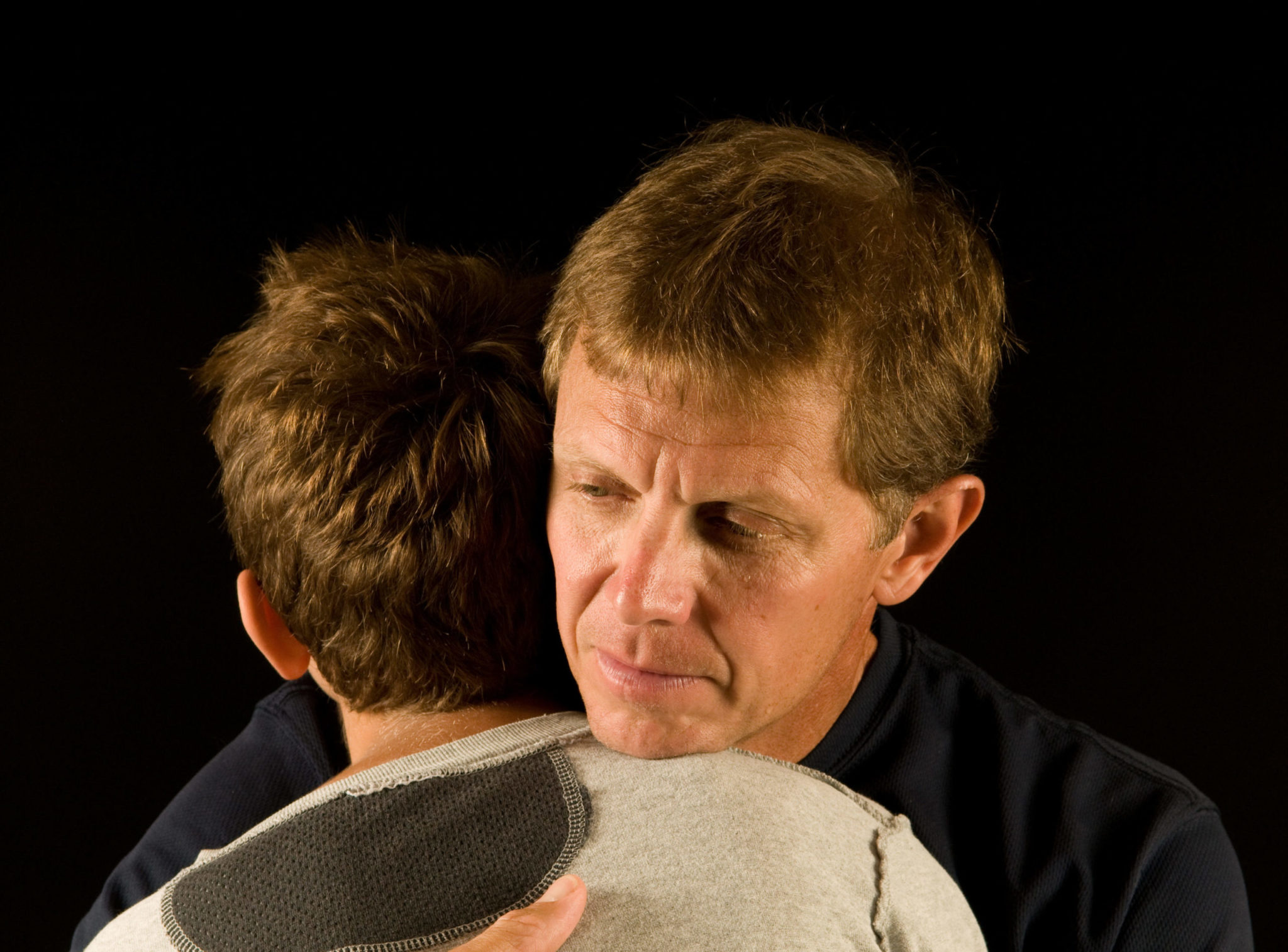
“I’ve been to a lot of [drug] treatment centers,” said Louis, a 42 year old divorced father of two and recovering addict living at Link House, a residential treatment facility in a quiet neighborhood in Newburyport, MA. “And I’d never heard of one with a father’s group. I was as eager as I was scared to join it, and I was scared. I carried so much guilt about being away from my kids because of my substance abuse, that it was hard to imagine spending 90 minutes with 5 other guys facing my fatherhood.”
“It was hard to imagine spending 90 minutes with 5 other guys facing my fatherhood.”
Like so many fathers dealing with substance use issues, Louis’s combination of fear and eagerness in joining the Dads In Recovery group, a unique program created and co-facilitated by Link House’s Executive Director Gary Gastman and myself, was not uncommon. Research shows that addiction driven behaviors damage family relationships, leaving fathers with a negative or limited relationship with their children, uncertainty about their role in the family and a powerful sense of guilt and shame.[1]
In one of the first of our six sessions, Louis told the group that for him, the overwhelming feelings of guilt and low self-esteem he experienced just thinking about the subject of fatherhood, made it very difficult for him to show up for the program. After pushing himself to return the following week, Louis – like most of the men at some point during the six weeks – had an epiphany that became the catalyst for what he saw as a tremendous opportunity to change. “When we did this activity from the curriculum, read a chapter of John’s book and started talking about the idea of my fathering legacy, something really hit me. It was almost a physical reaction. I realized that I could leave a different legacy for my kids.”
“I realized that I could leave a different legacy for my kids.”
Interestingly, a recent study examined the impact of various relationships on substance use and recovery of men and found that the only relationship that had a positive effect on men’s substance use recovery was the relationship with their children. [2] Like Louis, other fathers in the group (ranging from a dad in his twenties with a 10 month old to a couple of older dads with adult children), utilized the activities and ideas from our curriculum, the support of each other in and outside the group session, and the awareness and insights shared by their Counselors at the Link House residential treatment center to improve not only their fathering, but their co-parenting skills as well.
Research shows fathers battling substance use want to reconnect with their children and parent effectively, leading to a sense of pride and a powerful reason to remain sober. Some surveys of men in treatment reveal that a very high percentage – between 80% – 96% – believe that they require support in their role as fathers.[3] Interestingly, parallel research shows that the incarcerated dads who are less likely to re-offend and return to prison are those who have relationships with their children.
Having used TFP’s Fathering Across The Life Course curriculum in a variety of settings, and led father’s groups for almost two decades, rarely have I seen a group of men so committed to making positive changes, some small, others more significant in their fathering and co-parenting relationships. One father, Brian, used one of the exercises called the Relationship Check Up to begin writing and reaching out to his estranged 21 year old daughter, something he said he likely would have put off for more years had it not been for the group.
In another session focused on teaching the men about the latest brain science and child development, we watched a video from the Center on the Developing Child at Harvard about the concept of Serve and Return, a healthy brain development process by which the parent is responsive to an infant’s/child’s non-verbal cues and actions. Tom, a married father of a ten-month old boy, returned the following week and described in full detail how he applied the back and forth communication of Serve and Return lying on a blanket with his son during their weekend visit.
In the final session, Louis reported that three days earlier he received word that after he and his former wife had a contentious-free meeting with the court he had some news to share with the group. “For the first time in six months, I get to see my son and daughter this Sunday!”
Link House and The Fatherhood Project at MGH have submitted a grant application to expand the Dads in Recovery program to three other Link House sites. For more information contact TFP at connect@thefatherhoodproject.org
[1] McMahon, T.J., Winkel, J.D., Rounsaville, B.J. (2008). Drug abuse and responsible fathering: a comparative study of men enrolled in methadone maintenance treatment. Addiction, 103(2), 269-283.
[2] Kim, K.L., Davis, M.I., Jason, L.A., Ferrari, J.R. (2006). Journal of Prevention & Intervention in the Community, 31(1-2), 85-94.
[3] Williams, I.L. (2014).


